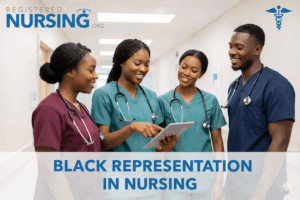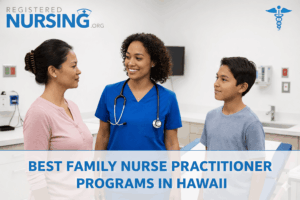Traumatic Brain Injury College Resources and Support for Adolescents and Caregivers
Navigating college has its fair share of challenges, from balancing coursework to making new friends. But for students with a traumatic brain injury (TBI), these challenges can be even more daunting. If you or someone you know is dealing with a TBI, you’re not alone.
Approximately 1.7 million people sustain a TBI each year in the United States, with many of them being young adults and students. Imagine trying to focus in class while managing symptoms like headaches, memory issues, and fatigue.
Add to that the struggle of fitting in socially, which can feel overwhelming. Students with TBIs are significantly more likely to face academic difficulties compared to their peers.
Here, we'll provide practical advice and resources for college students with TBIs, whether it’s tips for managing their condition or ways to advocate for themselves within academic and healthcare environments. With help from the physiatrists and physical therapists to the rehabilitation nurses and case managers, we’re here to help you succeed.
Let’s explore how you can make the most of your college experience – despite the obstacles.
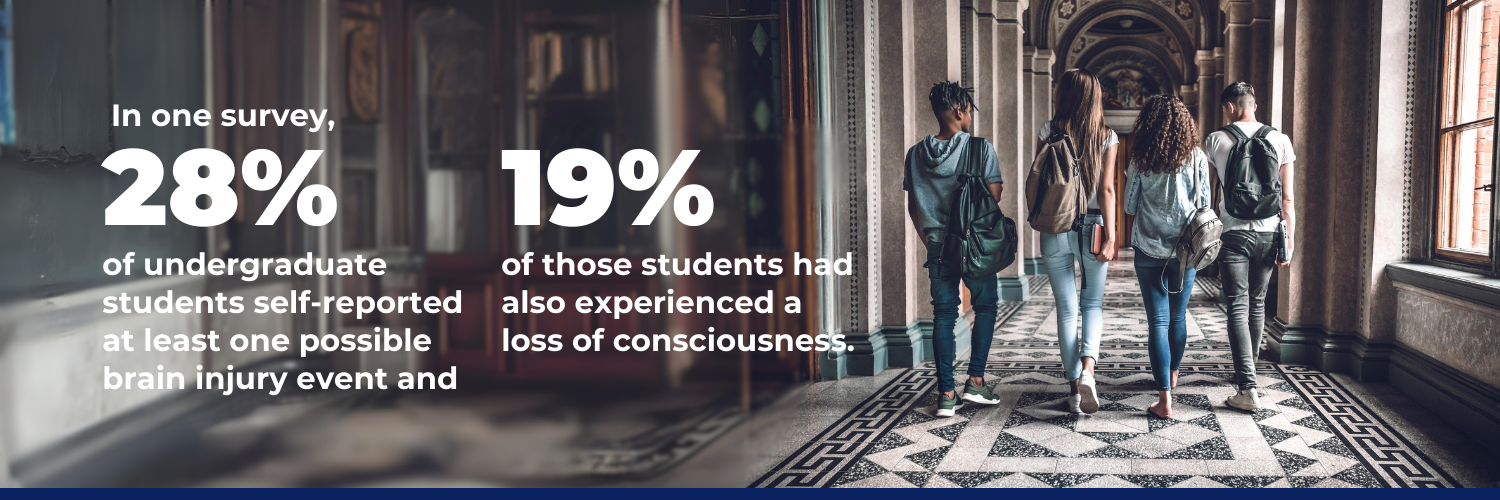
Articles
Back to School: A Guide to Academic Success After Traumatic Brain Injury
Learn when to head back to school, the benefits of online programs, when to seek support, and other tips in this guide for TBI patients, which is available as a PDF.
Returning to School After Traumatic Brain Injury
TBI affects students in multiple ways, such as cognitive delays and physical changes, but this guide looks at how they can decide when to return to school and how teachers and others can help them.
The Dangers of Traumatic Brain Injuries for College Students
Nolan Law Group looks at the causes and signs of traumatic brain injuries in this piece as well as the dangers they can have, such as brain swelling and bleeding of the brain.
Triumph Over Traumatic Brain Injury
Boston University discusses the benefits of Project Career, a program it offers for students with a TBI that prepares them for seeking employment and working after college.
Back to College After a Traumatic Brain Injury
Brett Becker was a student who suffered a TBI after an accident on vacation, and he discusses his life and some of the challenges he saw as he worked on going back to school.
Young Adults with Brain Injury and College
Jennifer Bunch examines students with TBIs’ unique challenges when going to school, including picking the right college and paying for their education.
The Vanderbilt Traumatic Brain Injury Center offers helpful tips for younger kids and college students going to school after a TBI, such as looking for support systems that schools offer and knowing the federal laws.
Return to School After Traumatic Brain Injury
In this article from the CDC, you’ll see what steps you should take when returning to school after a TBI and how to improve your chances of success.
Concussion Alliance – College Students
The Concussion Alliance offers a detailed guide that includes how to advocate for your educational needs, the symptoms of a concussion, and tips on having a social life.
The Student with a Brain Injury: Achieving Goals for Higher Education
In this article, Janis Ruoff examines the types of traumatic brain injuries, their effects on the brain, how students can achieve their college goals, and much more.
Scholarly
See the connection between alcohol usage and traumatic brain injuries in this review that examined more than 600 patients between the ages of 18 and 26.
More than 200 students participated in a survey sent via email, which found that those who had a TBI or spent time in a hospital reported having more symptoms than others.
The goal of this study was to determine how a traumatic brain injury would affect college students and found that it led to mood swings, cognitive symptoms, and other issues.
TBI survivors use different study skills to succeed in college, and this study looks at which skills helped them the most, along with the accommodations they received from their schools.
The two case studies you’ll find here each focus on a different student with TBI to find out how well they did in school and whether hybrid provided the most support.
Social Engagement Among Community College Students with Traumatic Brain Injury
Several authors worked on this piece to see how engaged students were with others and their colleges after surviving a TBI through interviews with 12 students 36 or under.
More than 120 students with a TBI and the same number of students without brain injuries completed a questionnaire that the authors of this piece used to identify the primary deficits at major colleges.
Carrie Childers and Karen Hux worked on this article to discuss how TBIs are often viewed as invisible injuries and how they changed the experiences students had in college.
The researchers behind this pilot study sent online surveys to college students and used their answers to determine what services they had access to and how those services helped them manage college with a TBI.
Symptom Cluster Associated with Mild Traumatic Brain Injury in University Students
Multiple authors worked on this published piece to explain their research and how it indicates a link between clusters of related symptoms and brain injuries in college students.
This pilot study used college students’ experiences and survey responses to focus on their brain injuries’ long-term impact on them.
Students with a TBI experience some major changes as they move from high school to college, and this paper looks at the support they need and the challenges they face.
Organizations
The Brain Trauma Foundation strives to help those with brain trauma by researching popular treatments, news that affects patients, and unique programs.
Hoping to change the lives of those with disabilities, the Kessler Foundation funds research initiatives, awards grants to individuals, and accepts awards to assist others further.
The Bob Woodruff Foundation focuses on helping veterans and their families deal with the issues that go along with traumatic brain injuries and holds special programs every year.
Brain Injury Association of America
Use the Brain Injury Association of America’s website to read stories from survivors, learn more about public policies, and see how you can become an advocate.
Hope After Brain Injury helps survivors of a TBI on their road to recovery through a podcast and free resources, along with information about popular books about brain injuries.
The Society for Neuroscience allows you to become a member and get full access to its publications. The site also lets you learn about its advocacy, initiatives, and careers.
The International Society for Cognitive Rehabilitation (iSCR)
The International Society for Cognitive Rehabilitation (iSCR) offers help for patients and their families, such as what cognitive rehabilitation is and who would benefit from it.
The American Brain Coalition website offers dozens of resources, including a podcast on how COVID-19 affects the brain and accessible mental health resources.
American Congress of Rehabilitation Medicine
The American Congress of Rehabilitation Medicine offers free resources, including training programs, webinars, and a library of helpful videos.
National Association of State Head Injury Administrators
Also known as the NASHIA, this organization is open to administrators who need technical help or want to sign up for its training programs.
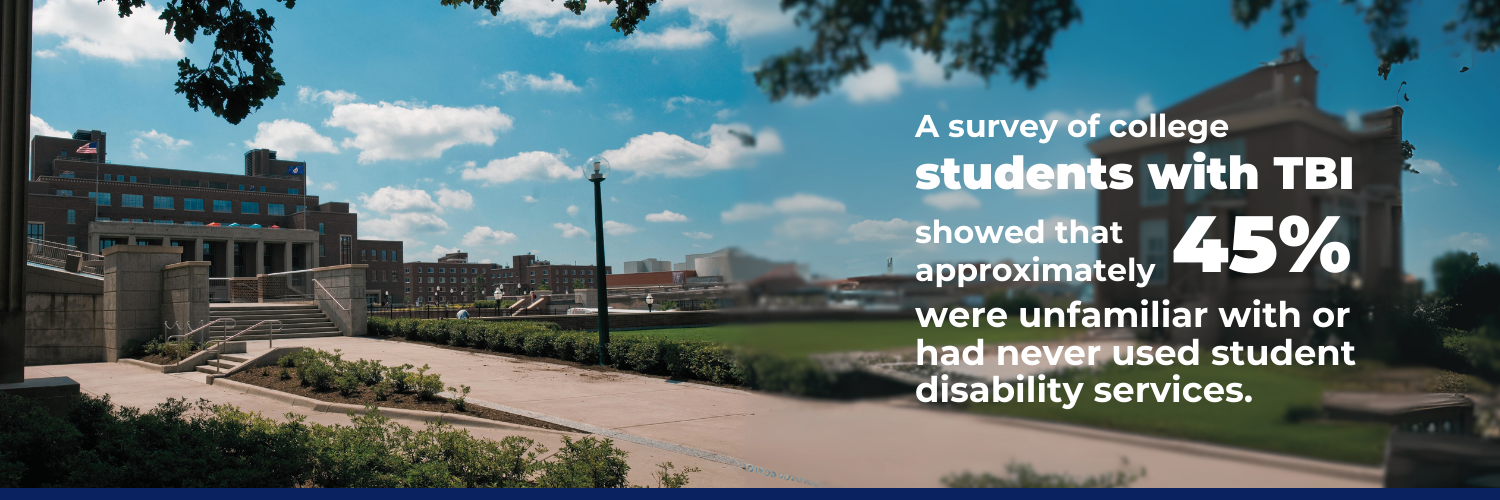
For School Nurses and Teachers
This PDF explains executive functions and how a TBI affects them. It also helps educators and others in school settings see how they can help their students.
Walters State Community College put together a guide to TBIs for teachers that focuses on the best student strategies and what teachers can do, such as emphasizing key points and reviewing information multiple times.
Severe Traumatic Brain Injury Factsheet (for Schools)
KidsHealth designed a guide for schools and teachers that looks at the symptoms of a TBI before reviewing the effects of the injury and how teachers can help in various ways.
Teaching Students with Acquired or Traumatic Brain Injuries and Concussions
The Indiana University of Pennsylvania created an online guide that’s available as a PDF. The guide provides teachers with tips, such as giving their students more time or letting them take breaks.
Accommodations Guide for Students with Brain Injury
Read through this guide to learn about the accommodations you can offer students, such as letting them use resources for their assignments and changing their seats.
Classroom Interventions for Students with Traumatic Brain Injuries
Discover intervention strategies that can help students with a TBI and see the steps you need to take, such as assessing the problem and changing the classroom.
Closing The Gap In Educators' Knowledge About Students With Traumatic Brain Injury
In this piece from the Scarlett Law Group, you’ll discover the truth behind common misconceptions associated with teaching students with a TBI.
Teacher Trainings on Brain Injury
These training videos help teachers at all levels learn more about helping and educating students with a TBI, such as using the school’s resources and working in teams.
Traumatic Brain Injuries May Lead to Academic Issues
A large section on this page focuses on the academic issues students with a TBI have, like the classroom triggers that worsen their symptoms.
Traumatic Brain Injury: What Teachers Should Know
This PDF is easy to read and covers how a TBI happens, its common physical and emotional symptoms, and the questions you should ask your students.
Traumatic Brain Injuries Impact on School One Month and One Year After Injury
In this study, researchers looked at 79 students to see how their injuries affected their studies one month later and one year after the injury.
Research Programs
Brain Injury Research Center at Mount Sinai
The Brain Injury Research Center at Mount Sinai in New York is one of the world’s leading authorities behind research programs for traumatic brain injuries.
Traumatic Brain Injury Center of Excellence
As part of the Military Health System, the Traumatic Brain Injury Center of Excellence focuses on current military personnel and veterans, but it also offers guides and resources helpful for anyone with a TBI.
Traumatic Brain Injury Research
The Indiana University School of Medicine is one of the leaders in TBI research in the United States and offers a BRAIN Center that studies treatments and popular care methods.
NJ Commission On Brain Injury Research
This commission is part of the New Jersey Department of Health and focuses on promoting research into the condition and finding the best treatments.
Memorial Hermann Foundation launched the Brain Research Center to bring in leading experts worldwide and foster research into brain injuries.
The School of Medicine at the University of Pittsburgh has a Brain Trauma Research Center that focuses on neurotrauma research and how traumatic injuries affect the brain.
Traumatic Brain Injury Model System
One of only 16 programs supported by a prominent national organization, the Traumatic Brain Injury Model System tracks patients’ progress over 30 years.
Brain Injury Clinical Research Center
This center at the Kennedy Krieger Institute is researching the best practices for helping children and adolescents with brain injuries.
For Students
TBI Tuesday: Return to Learn: Equal Access to Education for Students with Brain Injury
TBI Tuesday tackles different weekly topics, including this video, which focuses on how schools can help students get equal access to the education they need after surviving a TBI.
Sign up for this course from the UMKC Institute for Human Development to learn more about traumatic brain injuries, including their overall symptoms and how they affect students of all ages.
Also known as Project Learn, this website designed by the Brain Injury Association of New York State helps students with brain injuries develop the skills they need in school.
Colorado Kids with Brain Injury
You don’t need to live in Colorado to get help from this website, which includes a guide on managing your symptoms and links to major organizations that offer more assistance.
Learning How to Learn in College, Especially After a Brain Injury
Brainline interviewed a leading doctor in the field and shared the interview in this video to help watchers see how students with a TBI can focus on the positive things and ask for help when needed.
Acquired Brain Injury – School Supports for Student Success
The Maine Department of Education created this 50-minute video to discuss some support services available from different schools to help students with TBIs succeed.
What Can Students with TBI Do if They Flunk Out?
A TBI can affect your studies and lead to poor grades, but this helpful video offers some suggestions for taking if you flunk out of school.
For Adolescents with TBI, Getting Help with Plan B
Your plans may not pan out if you experience a TBI, but this video explains how to create a solid backup plan that will help you decide what to do next.
Return to School and Traumatic Brain Injury or TBI
Learn how to decide when you’re ready to go back to school after you suffer a traumatic brain injury through the simple questions found in this video.
Transition for Students who have Traumatic Brain Injury
Ten Sigma dedicated episode 128 of its video series to helping students prepare for the transitions when they head back to school after a TBI.
Accepting Accommodations in College for Invisible Injuries
Bob Duncan is a father who talks about his son’s traumatic brain injury and the challenges he had when asking his school for accommodations upon heading back to college.
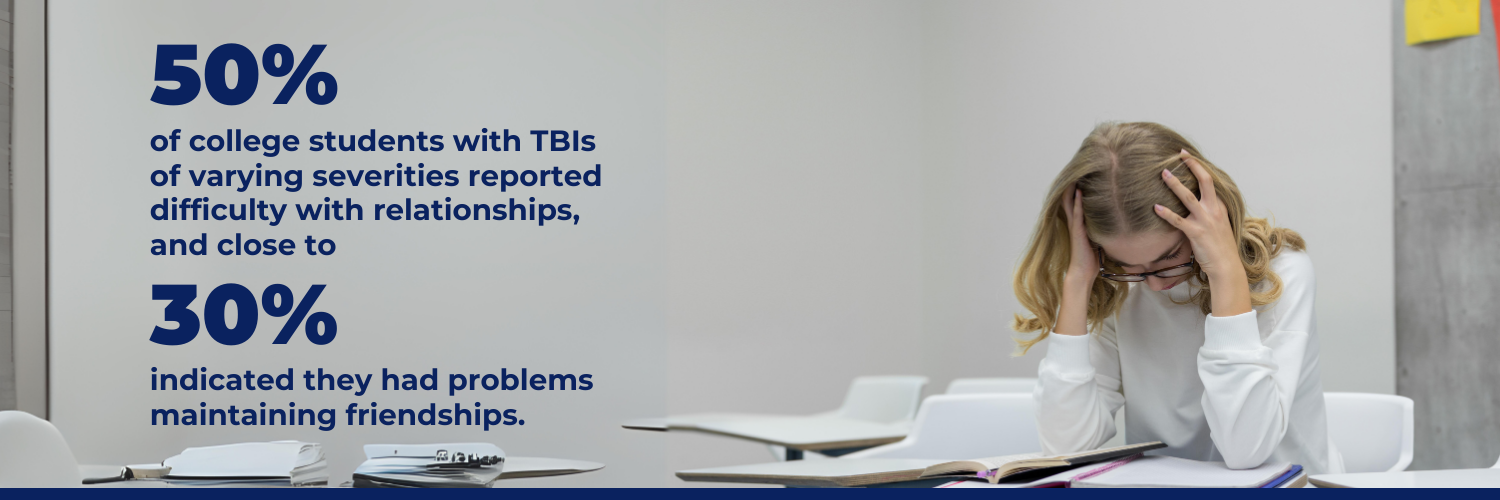
For Caregivers
Challenges, Changes, and Choices: A Brain Injury Guide for Families and Caregivers
Available from the Brain Injury Association of America, this guide offers a detailed look at how to help, from the time the student spends in the hospital to support them at home and school.
The Family Caregiver Alliance presents facts about traumatic brain injuries and goes over the symptoms and possible side effects, along with the various treatment options.
The team behind this article spent more than 70 hours interviewing the families of TBI survivors to find out more about their experiences, especially when the patients received ICU treatment.
Citing the COVID-19 mandates, researchers examined the needs of TBI patients’ caregivers and how those needs are often overlooked in favor of their loved ones.
Learning the basics of caring for someone with a TBI, the emotions you might experience, how to stay positive, and the importance of self-care here.
The Brain Injury Association of America created this information center to help you learn how you can take care of yourself and remain healthy as a caregiver.
Taking Care of People with TBI: Tool Could Help Caregivers
In this article from Michigan Medicine, you’ll find information on a new tool to help the caregivers of TBI patients limit the challenges they usually face.
Support For Family Caregivers After Military Traumatic Brain Injuries
Texas A&M University addresses how others can help TBI caregivers by listening to them and encouraging them to seek self-help outlets.
The Brain Injury Peer Visitor website has a lot of helpful information for TBI caregivers, including survival tips, stories from other caregivers, and self-care basics.
Sophia Institutional Repository
Through the Sophia Institutional Repository, you can access capstone projects with tips and help for caregivers created by students at St. Catherine University.
Podcast
Concussion Talk is a podcast dedicated to traumatic brain injuries. The host interviews professionals to discuss a range of topics in every episode.
Brain Injury Radio: The Silent Epidemic
Find out some of the solutions for dealing with a TBI, how the injury can lead to misdiagnosis and other topics as the host of this podcast discusses issues with leading experts.
The Adventures in Brain Injury Podcast
Calvin Balaster hosted more than 60 episodes of his podcast, which discussed the challenges and positive aspects of having a TBI.
Living with TBI – Traumatic Brain Injury
In Living with TBI, Jeff Gould talks about his experiences after developing a TBI, how he abused substances, and the steps he took to turn his life around.
Brain Injury Bites allows Brooke Trotter to talk about his life after a TBI as he provides others and their families with tips and hints on how they can improve their lives.
Me, Myself & TBI: Facing Traumatic Brain Injury Head On
Christina Brown Fisher developed this podcast to talk with other TBI victims about their experiences as she shares her own.
Faces of TBI wants to become the public face for the invisible injury known as TBI and runs a podcast series that interviews a new survivor every week.
Team Luke Hope for Minds Podcast
The Team Luke Hope for Minds Podcast features multiple episodes you can download to hear stories from TBI survivors and their loved ones.
Picking Your Brain is a podcast from the Defense Health Agency. Each episode includes clinical recommendations and information on TBI research.
This site offers multiple podcasts to help you learn about new treatments for brain injuries and hear from survivors about their experiences.
Fair Use Statement: Please share our content for editorial or discussion purposes. Please link back to this page and give proper credit to RegisteredNursing.org.
Latest Articles & Guides
One of the keys to success as a registered nurse is embracing lifelong learning. Our articles and guides address hot topics and current events in nursing, from education to career mobility and beyond. No matter where you are on your nursing journey, there’s an article to help you build your knowledge base.
Browse our latest articles, curated specifically for modern nurses.
